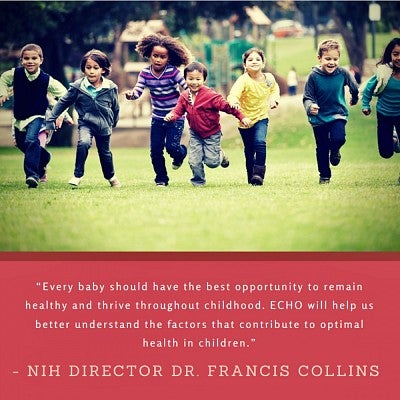The UO's Leslie Leve will expand research she began in 2002 and have a key role in the planning phase of a $157 million, seven-year initiative announced by the National Institutes of Health to probe environmental influences on children's health from conception to early adulthood.
Under the grant to the UO, Leve and colleagues will build on data already compiled on 770 children and seek new participants to expand the sample size to 1,000 children. Leve's research involves children adopted at or soon after birth and children living with their biological parents.

Leve and the UO will receive $1.5 million in the first year and potentially another $1.7 million next year, with the possibility of annual grant extensions through the life of the initiative.
"It is exciting to be part of a large-scale national initiative," said Leve, a professor in the Department of Counseling Psychology and Human Services and associate director of the Prevention Science Institute. "We are partnered with some of the top institutions in the United States. Our expertise in family, peer and school environments will add a unique angle to this initiative."
Experiences during sensitive developmental windows — from conception through pregnancy, infancy and early childhood — can have long-lasting effects on the health of children, the NIH noted in its announcement [link to announcement]. ECHO will focus on factors that may influence health outcomes such as upper and lower airway health and development, obesity and brain and nervous system development.
"The scope of this award underscores the importance of professor Leve's research and reflects the University of Oregon's depth of expertise in prevention science," said David Conover, UO's vice president for research and innovation. "We are proud to be working with the NIH and other partner institutions on this interdisciplinary effort to advance our knowledge of environmental health influences and create better outcomes for children."
Leve began her research under a previous NIH initiative while at the Oregon Social Learning Center in Eugene. She took over leadership of the project in 2007; it initially was awarded in 2002 to George Washington University with Leve leading the effort in Eugene. The grant moved with Leve to the UO in 2013.
The new grant to the UO will be conducted in collaboration with the Children’s Research Institute and George Washington University in Washington, D.C., Pennsylvania State University and Yale University. At the UO, the project will involve several faculty members from the UO's new Health Promotion and Obesity Prevention Initiative, a graduate researcher and undergraduate students.
As part of the UO's later plan in the initiative, researchers from the Institute of Ecology and Evolution, led by Brendan Bohannan, will gather dust from participants' homes to search for microbial impacts on health.
DNA samples collected from children in the study also will be analyzed to look for genetic associations with health outcomes. The information gathered, she said, will help address several important questions.
"Is there something in the food or exercise environment that predisposes kids to some conditions, like obesity? Or is it genetics that are shared among family members that contribute to the resemblances within family members? By studying children who are adopted as well as children raised by their biological parents, we can separate the influences of shared genes from aspects of the child’s rearing environment,” she said.
"For outcomes like obesity, research shows that children typically resemble their parents. However, in biological families that resemblance could be due to the parents and children having similar genes, or it could be due to aspects of the food and exercise environment that promote obesity for all household members," she said. "The ability to look at this same relationship in homes where kids are not related to their adopted parents may tell us something new; if parents and their adopted children still resemble each other, then there is something about the environment that is at least partially responsible for this health outcome."
—By Jim Barlow, University Communications
Leslie Leve is an expert in adoption, foster care, child abuse, interventions and outcomes for youth in the juvenile justice system, child development and teen girls. Learn more about Leve and find more UO experts on the Media Relations website.


